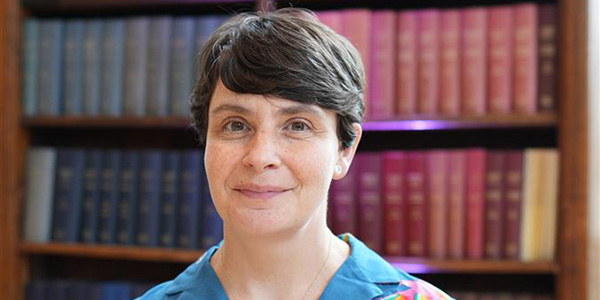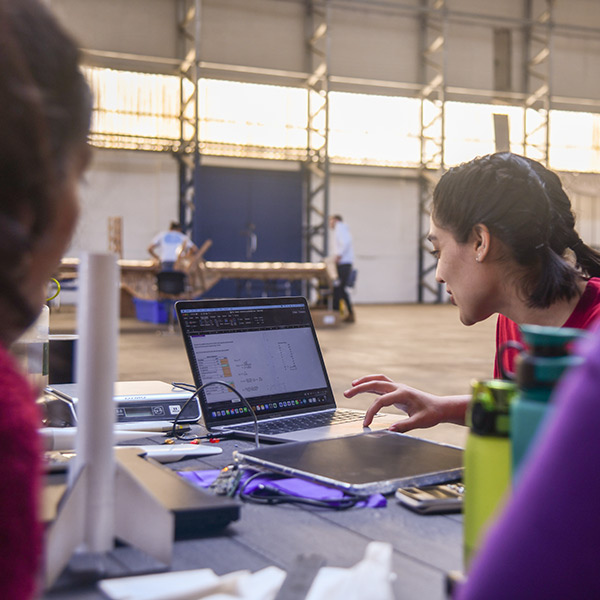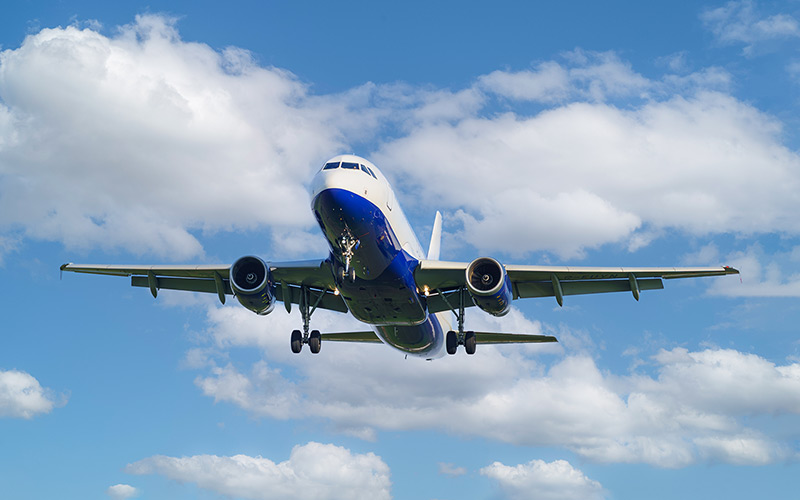World-class experimental facilities – including two national wind tunnel facilities.
Pioneers in sustainable aerospace, leading research into low-carbon air and space technologies.
Proven spaceflight heritage including the design, build, and operation of the SOAR satellite.
Strong industry collaboration – partnerships with major aerospace companies for real-world impact.
Creating a cleaner world
At Manchester, our aerospace engineering research tackles real-world challenges - from sustainable aviation to space exploration - through strategic, cross-disciplinary collaboration.
With world-leading expertise and strong industry ties, we drive transformative solutions that impact global mobility, climate goals, and technological progress. Our work doesn’t just advance aerospace - it helps shape a cleaner, safer, and more connected future.
Our research is about more than aircraft and spacecraft. It’s about solving the big challenges facing our world. From cleaner skies to safer space travel, we’re driven by the real-world impact our work can have on people’s lives and the planet.
Kate Smith - Group Lead and Professor of Space Technology

Research
Our areas of research
Study with us
Your career in aerospace engineering starts here!
We are open to top applicants who want to pursue study in aerospace engineering:
- PhD in Aerospace Engineering. Please review the expertise and interest of our staff members and apply online for a PhD place.
- MSc Aerospace Engineering
- Undergraduate courses in Aerospace Engineering
Study highlight
Aerospace Field Course: Our Aerospace Field Course offers hands-on experience with cutting-edge aerospace technologies, fostering practical skills in real-world environments and industry settings.

Connect with us
Our people
- Nicholas Bojdo - Senior Lecturer in Aerospace Engineering
- Timothy Carew - Knowledge Exchange Research Fellow (Applied Aerodynamics)
- Nicholas Crisp - Lecturer in Space Systems
- William Crowther - Professor of Aerospace Engineering
- Antonino Filippone - Professor of Computational Aerodynamics
- Peter Hollingsworth - Senior Lecturer
- Pawel Ladosz - Lecturer in Engineering Systems For Robotics
- Ciara Mcgrath - Lecturer in Space Systems
- Mostafa Nabawy - Reader in Aerospace Engineering
- Manu Nair - Lecturer in Space Engineering
- Ben Parslew - Reader in Aerospace Engineering
- Mark Quinn - Reader in Aerospace Engineering
- Kuppuraj Rajamanickam - Lecturer in Low Carbon Propulsion Systems
- Peter Roberts - Reader in Spacecraft Engineering
- Swapnil Sarjerao Jagtap - Lecturer in Low Carbon Propulsion Systems
- Kate Smith - Professor of Space Technology
- Sergey Utyuzhnikov - Reader in Aerospace Engineering
- Kieran Wood - Lecturer in Aerospace Engineering
- Shan Zhong - Professor of Experimental Fluid Mechanics
- Andrew Kennaugh - Senior Technical Specialist in Aerodynamics
- Ian Lunnon - Technical Specialist in Uncrewed Aerial Systems
- Conor Marsh - Technical Specialist in Synthetic Test Environments
- Ozgun Ozer - Technical Specialist in Avionics and Aerospace
- Peter Yates - Technical Specialist in Non-ambient Environments






